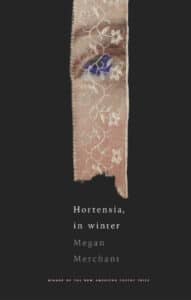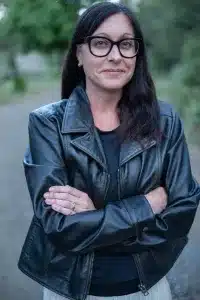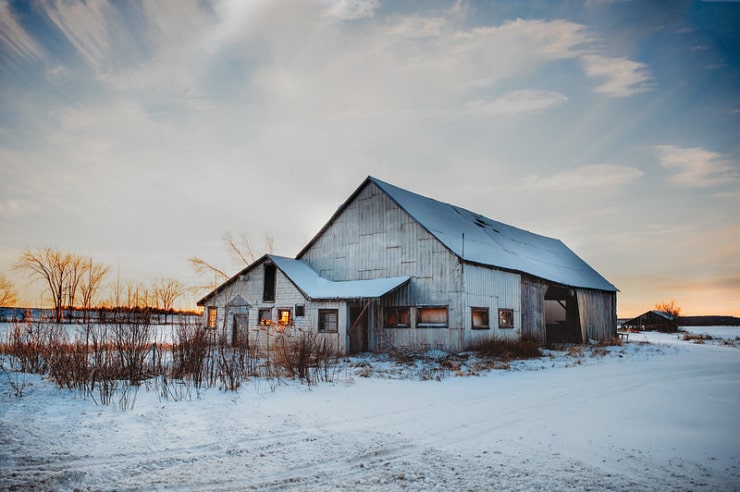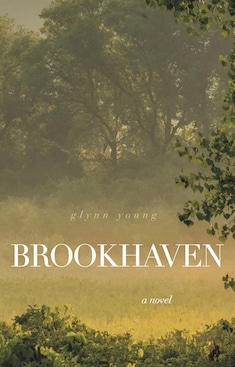Megan Merchant addresses her poems to an ancestor
I’ve been fascinated lately with Henry Wadsworth Longfellow’s The Courtship of Miles Standish, and how he worked to include real people into his epic poem of the Mayflower and the settlement of Massachusetts. I have a personal connection with two of my great-grandparents, Samuel and Octavia Young. Samuel was the youngest boy in the family, the last to enlist in the Civil War, and the only one of the three Young brothers to survive the war. After the war ended, he married Octavia Montgomery, his childhood sweetheart. She could officially trace her ancestors directly to Priscilla Mullin and John Alden of Mayflower fame, the very same hero and heroine of Longfellow’s great American poem. “Speak for yourself, John Alden.”
It’s like having Longfellow in your DNA.
As I began reading Hortensia, in winter: Poems by Megan Merchant, I was delighted to discover that Longfellow wasn’t the only poet to incorporate real people into his poems. Merchant’s “grandfather’s great-grandmother” was a pioneer woman named Hortensia Merchant, born in 1824 and died in 1905. Much to her parent’s concern, she and her brother discovered the Mormon faith; she married a Mormon and headed west. The couple broke with the main body of Mormons over polygamy and went their own way along with a considerable number of others.
As she addresses her poems to Hortensia, Merchant doesn’t simply reimagine what her ancestor’s daily life and experiences were like. Instead, she integrates her own life and experiences, developing a conversation with her great-great-great-grandmother. While it’s mostly a one-sided conversation, the outline of Hortensia’s life, or thoughtfully imagined life, becomes clear through the 46 prose poems in the collection.
This is how Merchant begins.
Dear Hortensia,
(March 1824-April 1905)

birthed, to teach you how to clamp down complaint? You are
ancestor and glyph. A hemline soaked wet in shit and faith.
I wind a thread around my finger until it numbs to try and
understand what it must have been like—the feral winter, a
crown of unanswered prayers, emptiness unkempt. To dream
of apples and grow thin on nothing but god. To house a passion
in the rooms of your body more rabid than hunger. You should
know—the coyotes yip your name here, in dark. They are
applying for sainthood. In the morning, I remove a juniper log
that refused to burn. Bury it with what wasn’t snared—bone
bits, apple core, a marrow of dark hair. Untamed.
Some of the subjects of the poems are prosaic – a burned-out porch light, picking wild berries, or finding a dead bird. Others are more experiential – a tornado, the arsonist who burned the Mormon temple in Nauvoo, Illinois, and watching the prairie fires. Still others consider more abstract and religious themes, like salvation, love, veneration, and eternal reward. Through them all, we experience the lives of two women cross nearly 200 years of history. And the history is personal.

Megan Merchant
Merchant has previously published four poetry collections, Gravel Ghosts (2016), The Dark’s Humming (2017), Grief Flowers (2018), and Before the Fevered Snow (2020); four poetry chapbooks; and a children’s book, These Words I Shaped for You. She’s received several literary awards and prizes for her work, including the New American Poetry Prize. She is also the editor of the poetry journal Pirene’s Fountain and the owner of Shiversong, an editing, manuscript consultation, and mentoring business. She lives with her family in Arizona.
Hortensia, in winter is a profound way to experience family history. The ancestor—for most of us a line in a family bible or a box on a genealogy chart—comes poetically alive. This is reimagining at its best.
Photo by Kristina Servant, Creative Commons, via Flickr. Post by Glynn Young.
How to Read a Poem uses images like the mouse, the hive, the switch (from the Billy Collins poem)—to guide readers into new ways of understanding poems. Anthology included.
“I require all our incoming poetry students—in the MFA I direct—to buy and read this book.”
—Jeanetta Calhoun Mish
- Longfellow’s “Paul Revere’s Ride”: Creating a National Legend - April 17, 2025
- Poets and Poems: Katie Kalisz and “Flu Season” - April 15, 2025
- Poets and Poems: Michelle Ortega and “When You Ask Me, Why Paris?” - April 10, 2025



Leave a Reply